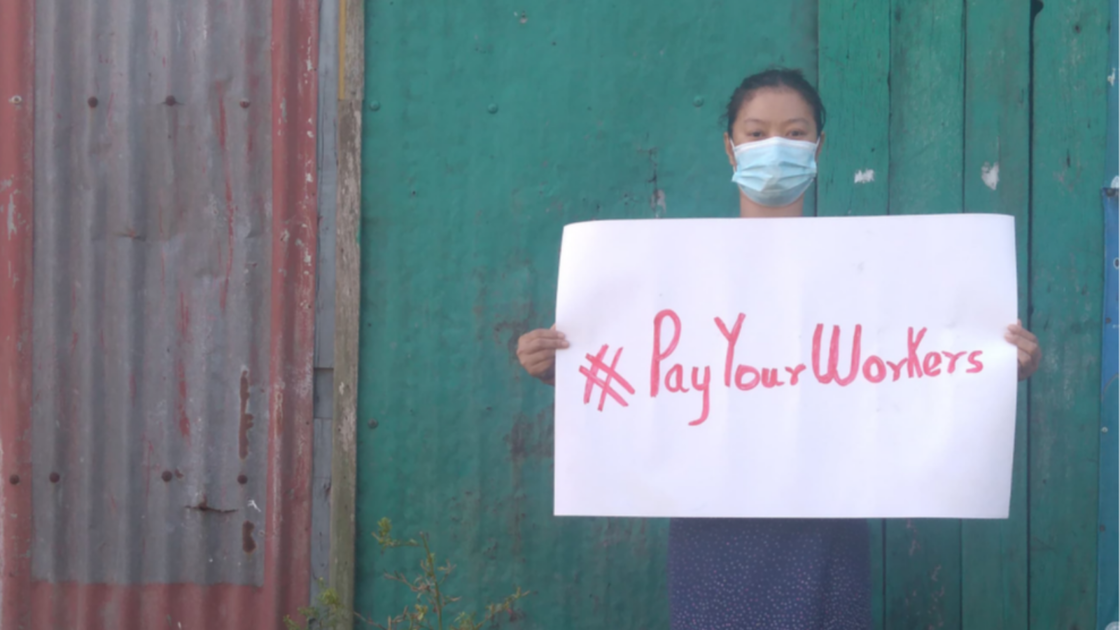We must rebalance the power in the garment supply chain to ensure that workers are paid justly and are treated fairly.
Today, Traidcraft Exchange, industriAll European Trade Union (industriAll Europe) and the Fair Trade Advocacy Office (FTAO) published a joint paper on the policy options to eradicate Unfair Trading Practices in the global garment sector. The paper looks into the precedent of the EU Directive in Unfair Trading Practices in the agricultural food supply chain and argues for the urgent need for a similar legislative instrument for the garment sector.
The paper demonstrates that Unfair Trading Practices (UTPs) are preeminent in global garment supply chains and are deeply interlinked with the current structure and functioning of the sector which is unfortunately known for its vastly unequal power relationships between different actors. Indeed, the SARS-COV-19 (COVID-19) crisis has both demonstrated and amplified the flaws of the system and resulted in abusive practices and costs being imposed on producers in the EU and abroad.
Judith Kirton Darling, Deputy General Secretary of industriAll Europe, said:
“The COVID-19 crisis highlighted the dreadful impact of Unfair Trading Practices on garment workers both in Europe and further afield. Not only did workers suffer due to cancelled shifts and factory closures, some workers had to fight for wages for work already done with big brands refusing to pay for work not shipped due to COVID-19 restrictions. We must rebalance the power in the garment supply chain to ensure that workers are paid justly and are treated fairly. ‘’
The paper offers an overview of some of the main Unfair Trading Practices faced by garment producers, such as disproportionately low buying prices - which are often below the cost of production, short manufacturing lead times, poor payment terms, unilateral amendment contract terms, or shifting the risks so that producers are the ones facing them.
Charlotte Timson, CEO at Traidcraft Exchange, added:
“We can tackle these unfair trading practices by prohibiting abusive contract terms, as was done through the EU’s agri-food Unfair Trading Practices Directive. This instrument outlaws specific behaviour such as unilateral cancellations, unilateral amendments or retro-active discounts.”
The joint paper highlights the precedent of the EU Directive on UTPs in the agri-food supply chain as a building block on the way forward to eradicate these practices from the garment sector. The organisations recall that the European Parliament has already acknowledged the need to take action to combat unfair practices beyond the agri-food industry, and recommend trade unions and civil society, EU Member States and the European institutions take action to make it happen.
The publication of the paper coincides with the recent adoption of an Explanatory Opinion of the European Economic and Social Committee (EESC) on the transposition and implementation of the EU Directive on the agri-food supply chain. In the opinion, entitled Towards a fair food supply chain (NAT/823), the EESC welcomes the efforts undertaken by Member States which have addressed, through their transposition laws, issues that go beyond the minimum requirements of the EU Directive.
With regard to the adoption of the opinion, Jorge Conesa, policy manager at the FTAO and appointed expert by the rapporteur of the opinion, highlighted that “many of the challenges and dysfunctions that the EU decided to address through the agri-food UTP Directive are -at least- equally severe in the garment sector and it is, therefore, logical to undertake a similar legislative approach to tackle them”.
Contact: Andrea Husen-Bradley (press and communication), Elspeth Hathaway (policy adviser)
